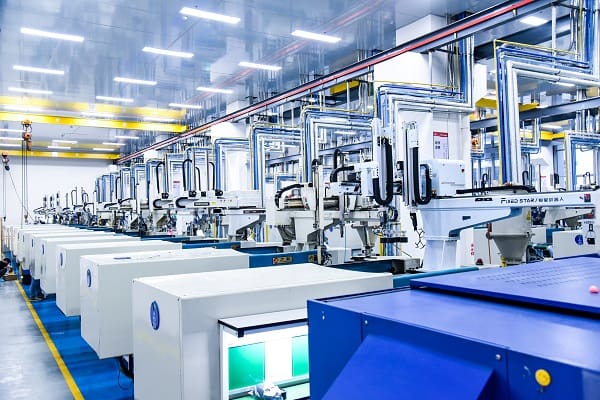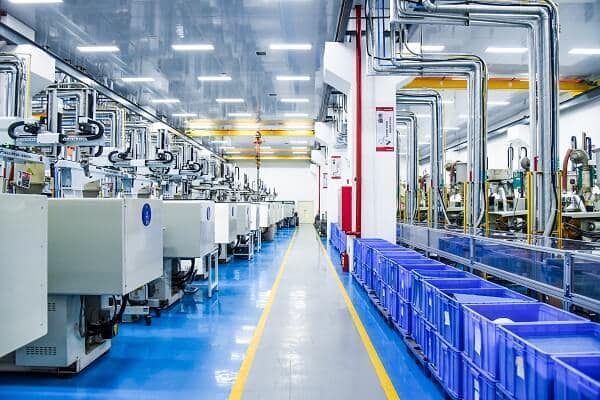The Industrial Power of Plastic Injection Molding
In the fast-paced world of modern manufacturing, 플라스틱 사출 성형 stands out as a cornerstone of industrial production. From automotive components to medical devices and consumer electronics, this advanced manufacturing technique plays an irreplaceable role in mass production. Its precision, efficiency, and cost-effectiveness make it the preferred choice for manufacturers worldwide.
The Evolution of Plastic Injection Molding
The journey of plastic injection molding began in the late 19th century, but its real industrial impact became evident in the 20th century with the rise of thermoplastics and automation. Today, state-of-the-art technologies such as robotics, AI-driven quality control, and 3D mold prototyping have revolutionized the process, ensuring higher accuracy, reduced waste, and faster production cycles.
Key Advantages of Plastic Injection Molding
Unmatched Efficiency and Speed
One of the primary reasons manufacturers prefer plastic injection molding is its ability to produce high volumes of parts in a short time. Unlike traditional methods, where individual parts must be machined or assembled, this process allows for rapid replication of identical components with minimal downtime.

High Precision and Consistency
Industrial applications demand parts with exact specifications. Plastic injection molding ensures precision down to microns, eliminating inconsistencies that can occur in other manufacturing techniques. Automated processes ensure every produced part meets stringent quality standards, reducing rejection rates and enhancing reliability.
Cost-Effective Mass Production
Manufacturing at scale requires cost efficiency. Plastic injection molding significantly reduces production costs due to its automated nature, minimal material waste, and lower labor requirements. Once the mold is developed, the cost per unit dramatically decreases, making it the ideal solution for bulk manufacturing.
Versatility in Material Selection
With advancements in polymer science, plastic injection molding can now accommodate a vast range of materials, from thermoplastics like ABS and polycarbonate to specialized composites and biodegradable resins. This flexibility allows manufacturers to choose the best material for their specific application, ensuring durability, heat resistance, and aesthetic appeal.
Complex Geometries and Design Flexibility
Unlike traditional manufacturing, which struggles with intricate designs, plastic injection molding enables the production of highly complex and detailed parts. Engineers can incorporate undercuts, threads, hinges, and multi-material combinations into a single part without additional assembly, streamlining the production process.
Enhanced Strength and Durability
By utilizing advanced polymers and reinforcing materials, plastic injection molding can produce parts with exceptional strength-to-weight ratios. This is particularly beneficial in industries like aerospace and automotive, where reducing weight without compromising durability is a top priority.
Plastic Injection Molding in Key Industries
Automotive Industry: Precision & Performance
The automotive sector relies heavily on plastic injection molding to manufacture lightweight, durable, and aesthetically refined components. From dashboards to engine covers, the process enables automakers to maintain high efficiency while reducing vehicle weight for improved fuel efficiency.
Medical Industry: Sterile & Reliable Solutions
Medical-grade plastics processed through plastic injection molding ensure precision, biocompatibility, and sterilization compliance. Syringes, implants, and diagnostic equipment benefit from this technique, guaranteeing patient safety and long-term reliability.
Consumer Electronics: Innovation at Scale
From smartphone casings to intricate circuit board housings, plastic injection molding allows the consumer electronics industry to innovate rapidly. Its ability to mass-produce high-quality, intricate parts ensures that cutting-edge designs reach the market efficiently.
Aerospace & Defense: Strength and Lightweight Materials
With the need for high-performance materials that withstand extreme conditions, plastic injection molding plays a crucial role in aerospace and defense. Components for aircraft interiors, military-grade equipment, and satellite systems all benefit from its precision and material versatility.
Sustainability in Plastic Injection Molding
Modern manufacturers are increasingly prioritizing sustainability, and plastic injection molding is evolving to meet these demands. The industry is embracing recycled plastics, biodegradable polymers, and energy-efficient machinery to reduce its environmental impact. Additionally, advancements in waste reduction techniques ensure that excess material is repurposed rather than discarded.
The Future of Plastic Injection Molding
As industries continue to demand higher precision, cost-effectiveness, and sustainability, plastic injection molding remains at the forefront of innovation. With the integration of AI, robotics, and eco-friendly materials, the future of this manufacturing method promises even greater efficiency and performance. Whether in automotive, healthcare, or high-tech industries, plastic injection molding will continue to shape the world of industrial production.
